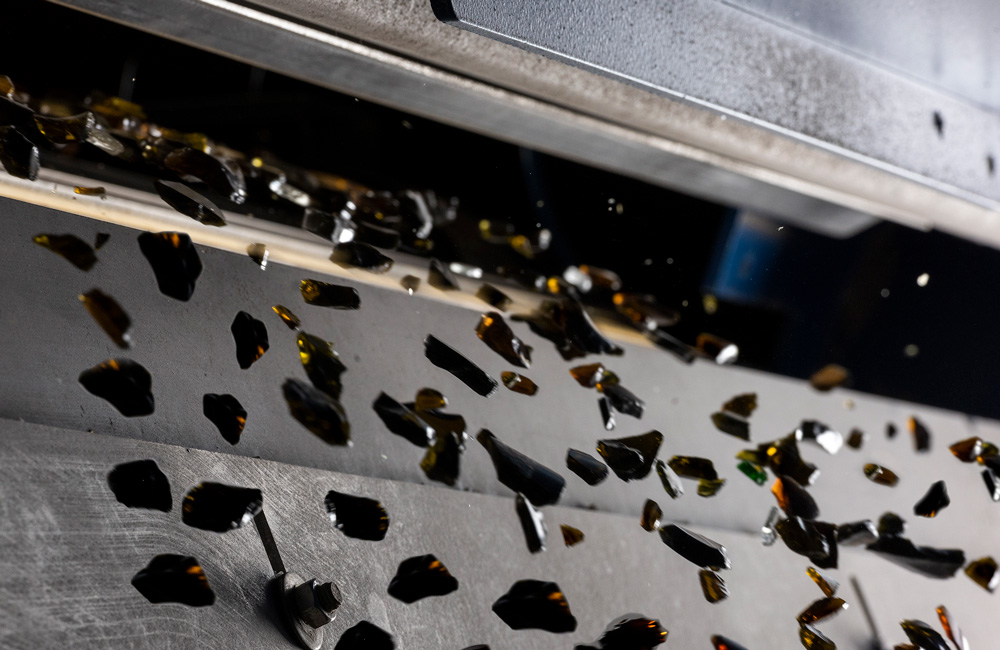Case Studies
Sep 20, 2019 |
Sesotec systems in Ireland’s most advanced glass recycling facility

Glass is a material that can be endlessly recycled without any loss in quality. Compared to the production of new glass, using recycled glass offers the advantage of a clearly reduced energy input and at the same time helps save raw materials such as quartz sand, soda and lime.
The Problem: Non-transparent glass is a special challenge for the recycling process
In the production of new glass products the purity of the cullet is the decisive factor for glass factories. Cullet from waste glass collections, however, frequently contains unwanted materials such as ceramics, stones, and porcelain (CSP) that have to be removed. In bottle production such contaminants may lead to defects and inclusions. Because of their optical similarity glass types that could be recycled often are separated together with such CSP contaminations.
Glass of dark to black colour, which preferably is used for packing sensitive and easily perishable food such as salad oil or cream liqueur, generally protects the contents against light and especially against solar radiation and therefore against early perishing. After its disposal such dark, non-transparent glass is a special challenge for the recycling process because CSP contaminations and dark glass so far could not be differentiated. Such cullet of dark colour was sorted out together with CSP contaminations and thus ended up in landfills.
The Solution: Innovative sorting technology detects dark glass
Glassco Recycling Ltd. is Ireland‘s biggest collector and recycler of waste glass and cans. In cooperation with Sesotec GmbH and their partner KRS Recycling Systems GmbH the company, based on Sesotec‘s revised „FLASH C-C Technology“, has now found a possibility to recycle dark, non-transparent waste glass and supply it back to the glass production industry in adequate quality, thereby completing the recycling circuit. In this facility alone this means that every year more than 10,000 tons of waste glass that otherwise would have ended up in landfills can now be recycled. According to Glassco Recycling this facility is the first of its kind.
The Outcome: Reduced glass loss in the sorting process
Zeki Mustafa, Managing Director of Glassco Recycling, is convinced of the performance of these K9 FLASH sorting systems: „With this new technology we are now able to reduce the amount of glass loss in the sorting process because dark, non-transparent glass now remains in the glass flow and can be recycled.“
Download Case Study
Sesotec systems in Ireland’s most advanced glass recycling facility





